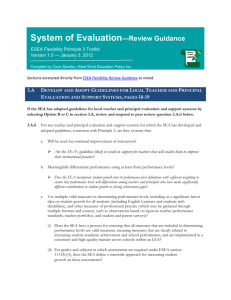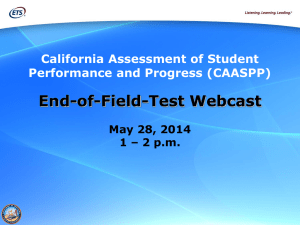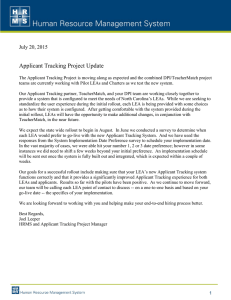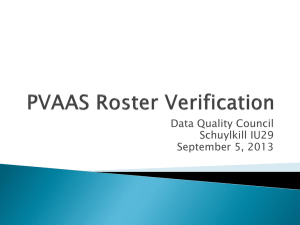LEA Funding Allocation Q&A
advertisement
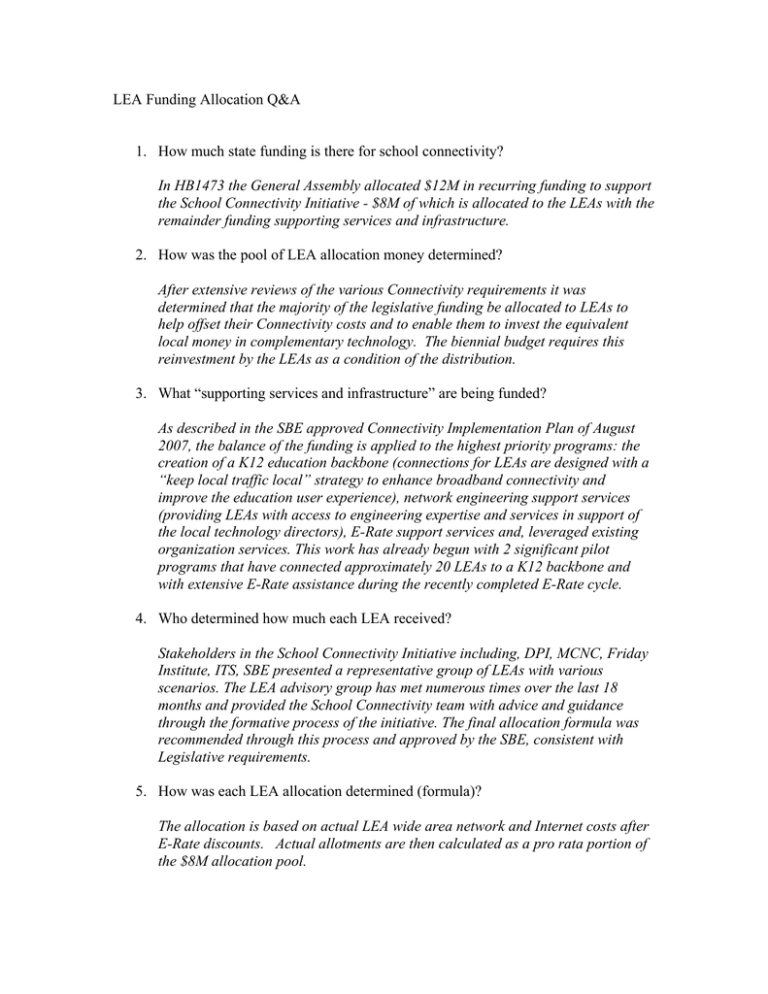
LEA Funding Allocation Q&A 1. How much state funding is there for school connectivity? In HB1473 the General Assembly allocated $12M in recurring funding to support the School Connectivity Initiative - $8M of which is allocated to the LEAs with the remainder funding supporting services and infrastructure. 2. How was the pool of LEA allocation money determined? After extensive reviews of the various Connectivity requirements it was determined that the majority of the legislative funding be allocated to LEAs to help offset their Connectivity costs and to enable them to invest the equivalent local money in complementary technology. The biennial budget requires this reinvestment by the LEAs as a condition of the distribution. 3. What “supporting services and infrastructure” are being funded? As described in the SBE approved Connectivity Implementation Plan of August 2007, the balance of the funding is applied to the highest priority programs: the creation of a K12 education backbone (connections for LEAs are designed with a “keep local traffic local” strategy to enhance broadband connectivity and improve the education user experience), network engineering support services (providing LEAs with access to engineering expertise and services in support of the local technology directors), E-Rate support services and, leveraged existing organization services. This work has already begun with 2 significant pilot programs that have connected approximately 20 LEAs to a K12 backbone and with extensive E-Rate assistance during the recently completed E-Rate cycle. 4. Who determined how much each LEA received? Stakeholders in the School Connectivity Initiative including, DPI, MCNC, Friday Institute, ITS, SBE presented a representative group of LEAs with various scenarios. The LEA advisory group has met numerous times over the last 18 months and provided the School Connectivity team with advice and guidance through the formative process of the initiative. The final allocation formula was recommended through this process and approved by the SBE, consistent with Legislative requirements. 5. How was each LEA allocation determined (formula)? The allocation is based on actual LEA wide area network and Internet costs after E-Rate discounts. Actual allotments are then calculated as a pro rata portion of the $8M allocation pool. 6. How many LEAs received an allotment? All LEAs received allotments. Most LEAs received allotments through DPImanaged PRC 073. Some LEAs received full reimbursement through the e-NC Authority via funding provided by the Golden Leaf Foundation. 7. When will LEAs see tangible results? All LEAs have received funding allotments. All LEAs have received e-Rate training, support and assistance. Some LEAs have already experienced positive, tangible results from pilot efforts that have been underway since early 2007. The remainder will experience connectivity improvements over the course of the next six months as each individual LEA is connected to the NCREN backbone. On a priority/ need basis, network engineering support is being provided and will substantially increase over the next several months. 8. Why do wealthy districts like Wake get such a large allotment? As mentioned above actual LEA expenses relative to connectivity after E-Rate discounts are the basis of the allotment formula. The federal E-Rate program provides discounts to schools based on F&R data and rural or urban status. As such the least wealthy LEAs receive the highest discounts – up to 90%. Hence by calculating the state funded allotment against the after E-Rate cost to the LEA we provide across the board equitable support for connectivity.
